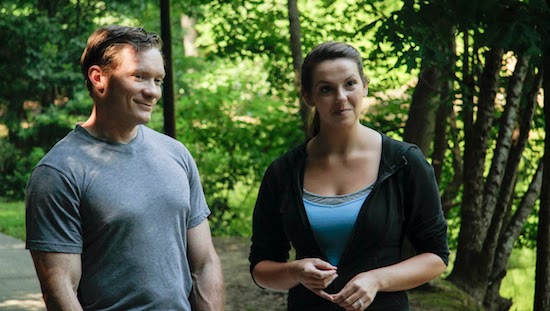I spent three months at the beginning of 2013 assisting with the Food For Fertility program. I helped with each Saturday class and developed an evaluation tool to assess the success of the program. My work fulfilled my practicum requirements for the School of Public Health, as well as a segment of my dietetic internship.
The results were presented at the 2013 American Society for Reproductive Medicine (ASRM) annual meeting in Boston and an abstract, “Assessing the effectiveness of “food for fertility” program,” which I co-authored with Judy Simon, MS, RDN, CD, CHES, and Dr. Angela Thyer, MD, was published in the journal Fertility and Sterility in September. (The actual abstract is behind a paywall, unfortunately, although I did notice someone posted it here.) What’s not behind a paywall is my practicum poster: “Evaluation of the Food For Fertility Program.” Enjoy.
In my months observing, then assisting with the class (I went to several FFF classes the prior fall so I had a foundation for developing my evaluation tool) I saw first-hand the power of peer support when building new habits to support health and wellness, especially when the stakes (successful conception and healthy pregnancy) were high. The women in the class had terrific camaraderie, sharing ideas and learning from each other.
“We had the participants really lead the way in problem solving and identifying barriers and opportunities and identifying what worked for them in where they needed help,” Simon said.
While infertility is ultimately a personal and individual journey (as with any other health issue, the details will differ from person to person), there was a profound sense of “we’re in this together.” In a society where there is often a sense of secrecy about certain health problems, being able to talk to others who are going through a similar journey helps to ease the stress of feeling like there is something wrong with you and you alone.
“I’m very aware of how people are very guarded about this,” said Theresa, the Food For Fertility “graduate” I interviewed for my column in Sunday’s Seattle Times. “When you start talking about it you find out how many people had some sort of struggle…but no one talks about it. I’ve found it very frustrating that people have to feel that guarded.”
(Given this sentiment, you might wonder why Theresa chose to not give her last name or be photographed. She strongly considered being completely out in the open about her struggles and successes, but ultimately had reasons for maintaining her privacy.)
Peer support was one of the driving forces behind the initial development of the class three years ago, as Simon was working with many infertility clients individually through her Bellevue private practice, Mind Body Nutrition. (Simon also sees patients at the UW Medicine Roosevelt Clinic.)
“As I worked with these women and saw how much time they had to put into making healthy lifestyle changes, I thought wouldn’t it be great if they had the support of other women who were going thought the same journey they were going though,” she said.
The class sizes have varied from 6-12 women, and students in one of the earlier classes came up with the idea to start a private Food For Fertility Facebook page. A monthly support group for graduates, facilitated by Simon, followed. Both serve as outlets where the women can share disappointments and successes and get help from one another. Some of the classes have opted to invite spouses or partners to one of the sessions to help them understand the importance of emotional support as well as good nutrition and regular physical activity.
Thyer points out that the support component has ben shown to help people keep motivation and make changes. “It’s nice that there are a group of women who have a common goal, who can use social media and call each other and create a network of friends.”
When I asked Theresa what one thing she would want women who are currently struggling with infertility to know, she said: “They’re not the only people who’ve ever had to do this…there are ways to find the other people who have gone through this.”
You can find more information about the next Food For Fertility class on the Mind Body Nutrition or Seattle Reproductive Medicine websites.
Photo source: Centers for Disease Control and Prevention







